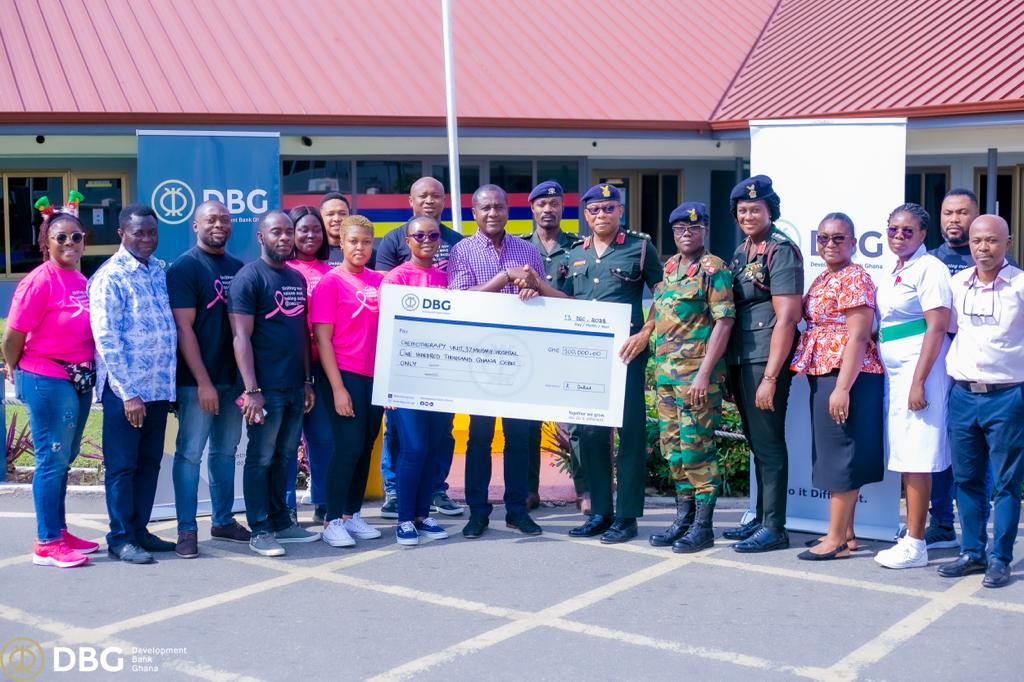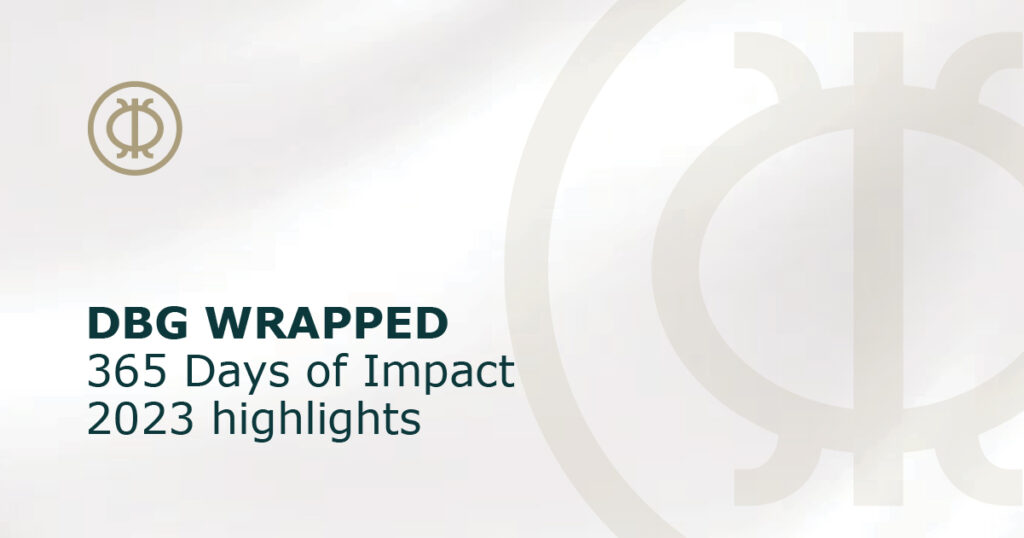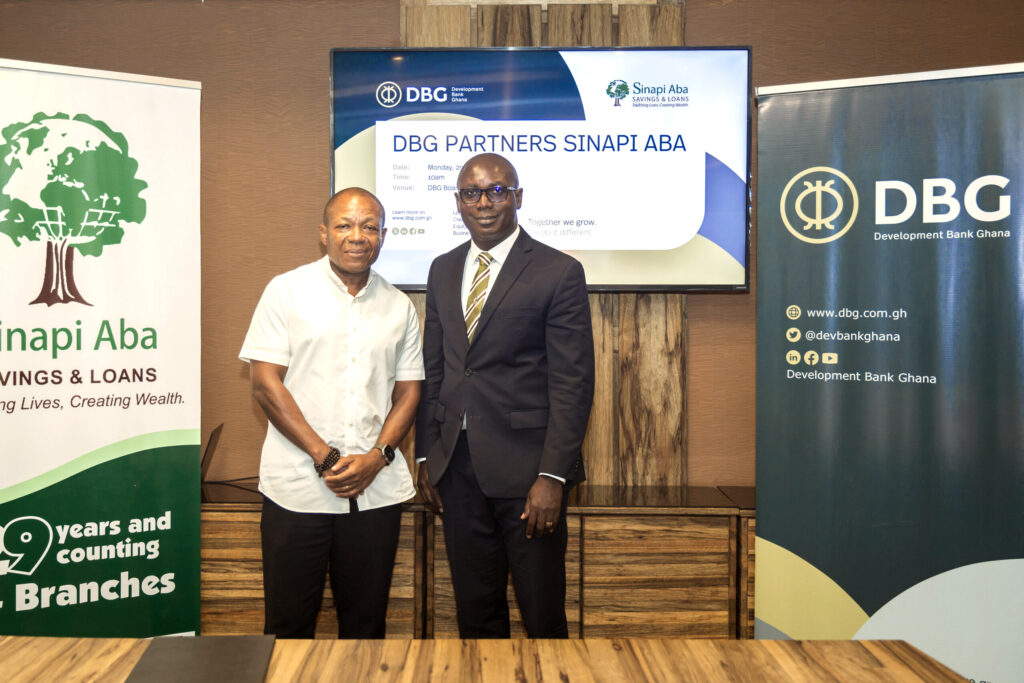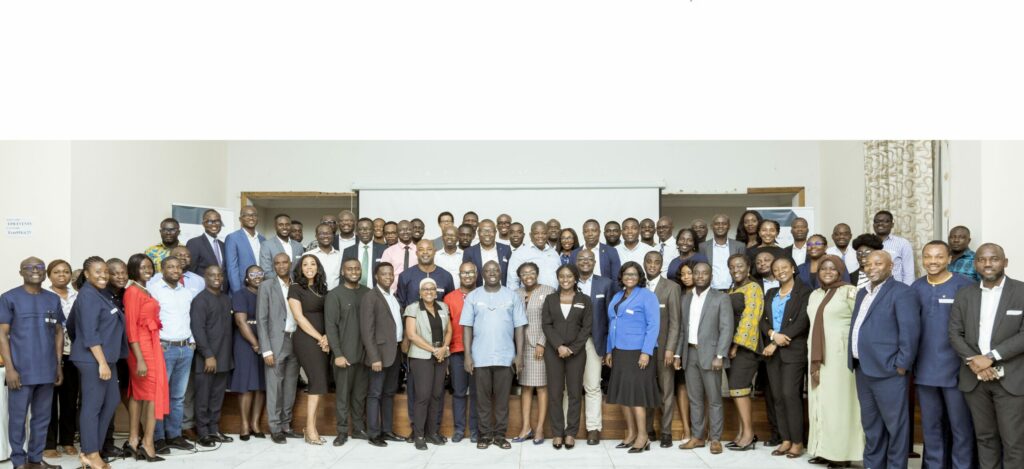Development Bank Ghana (DBG) has pledged financial support for the Breast Cancer Unit of Korle-Bu Teaching Hospital (KBTH) over the next five years.
Presenting an amount of GH¢100,000 to the Breast Cancer Unit in Accra, Chief Executive Officer-DBG, Kwamina Duker, explained that the decision to support KBTH is to help address certain needs of the facility over the five-year period.
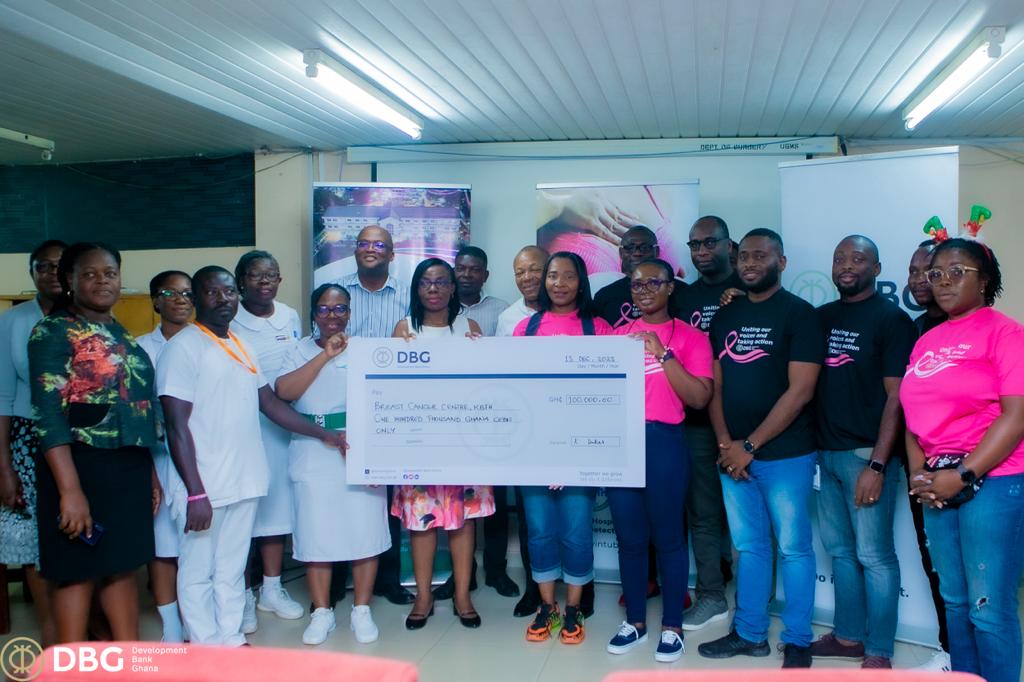
“We are a long-term bank and we believe in staying with our partners and donors; and in this particular case, as we make our contribution, we are committing to do this for the next five years so there is continuity. You will see us again next year,” he assured.
He underlined that the decision to support the breast cancer unit is solely an initiative of company staff who collectively worked as a team and raised the money, and leadership of the bank only topped up what the staff raised. He concluded that the step taken by the institution illustrates “how passionate the staff and organisation feel about breast cancer”.
Head-Surgical Department, KBTH, Professor J.E. Mensah underscored poverty as the biggest challenge to practicing medicine in the country. According to him, patients transferred to the hospital come with major cases yet some do not have means to pay for the service.
He commended the bank for their donation and explained how such kind gestures from corporate bodies and individuals continue to support needy patients at the hospital.
“If anybody asks me of the biggest challenge to practicing medicine in Ghana, my response will be poverty; because if patients are financially stable, they can afford the cost of medical care and all. But most people don’t have financial strength, and these are our brothers and sisters. So, we sometimes have to bend corners to solve their problems’ and we can only do so with assistance from people like you [DBG],” he said.
Furthermore, he said, as a teaching hospital KBTH has to open its doors to attract more people, even those with financial challenges, so that others can be trained through pure apprenticeships in the hospital.
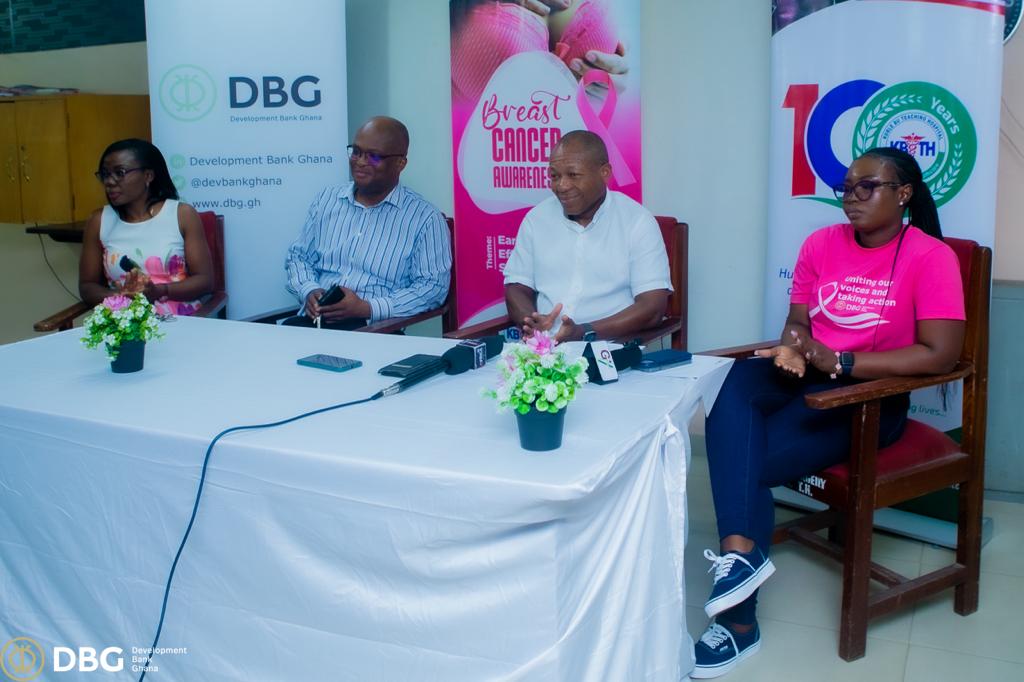
Head-Corporate Social Responsibility, DBG, Barbara Wricket mentioned that as a bank that is passionate about women and children, the staff in October embarked on rolling out an initiative to support women with treatment for breast cancer.
She indicated that their contributions as staff also got some assistance from leadership of the bank, bringing the money to GH¢200,000 – adding that they are donating GH¢1,000 each to the KBTH and 37 Military Hospital.
“In the month of October, we embarked on rolling out an initiative to support women with breast cancer. Internally, we were able to raise funds which were co-funded by DBG; and with the push of management we raised GH¢200,000 – of which we will be donating GH¢100,000 to KBTH and GH¢100,000 to the 37 Military Hospital,” she said.
Additionally, she said, the bank aims at supporting the children’s hospital by renovating some old structures and identifying the diseases that are prominent among them to offer their assistance. Also, she mentioned that the bank hopes to increase the amount of money they give to KBTH.
A surgeon at the Breast Surgery Unit of KBTH, Dr. Josephine Nsaful, mentioned that breast cancer cases continue to increase as more deaths are being recorded in developing countries; especially in West Africa, including Ghana, because women hardly go for breast-screening.
